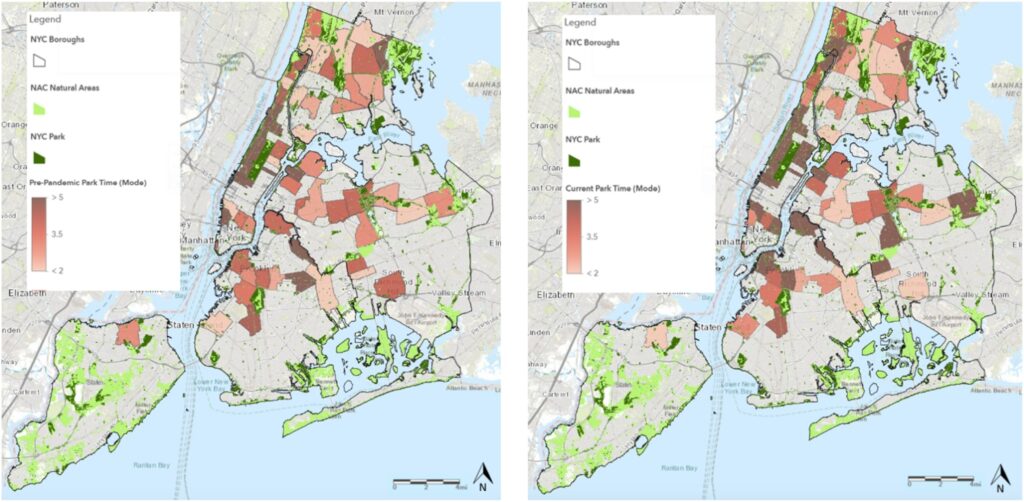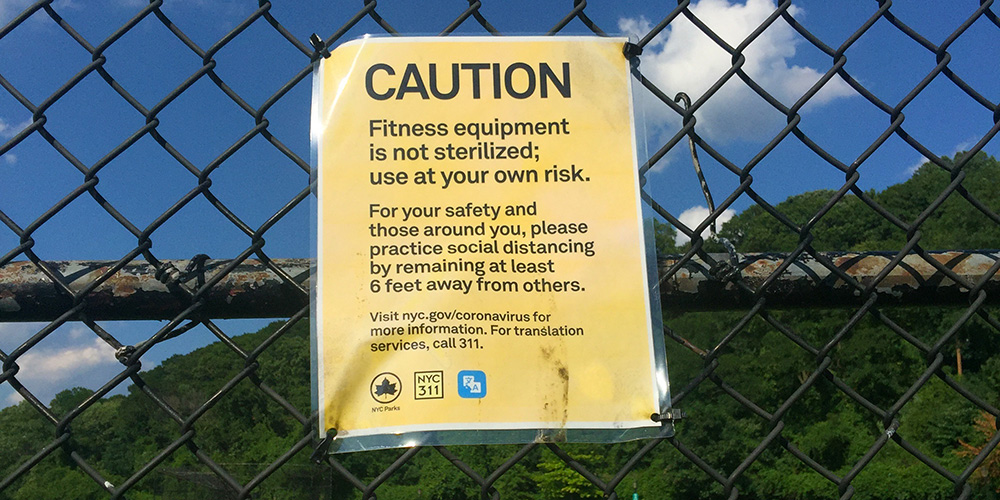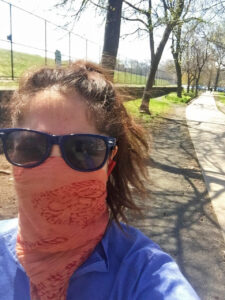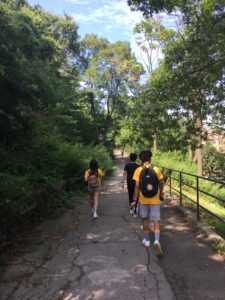Urban Green Equity and COVID-19
11/10/2022
Faculty Spotlight: Dr. Pipitone Explores the Effects on Park Use and Sense of Belonging in NYC

A study conducted by Jennifer M. Pipitone, Ph.D., Assistant Professor of Psychology, has uncovered surprising findings about how New Yorkers typically use urban green spaces and how those trends have changed since the onset of the COVID-19 pandemic.
The study, “Urban green equity and COVID-19: Effects on park use and sense of belonging in New York City,” was published last year and appeared in a special issue of the peer reviewed journal Urban Forestry & Urban Greening. The study was co-authored by Dr. Pipitone and a colleague from SUNY Old Westbury, Svetlana Jović, Ph.D.
The seed of the research study was planted in early 2020, when Dr. Pipitone set out to explore perceptions of nature among New York City residents. During the spring and summer of that year, she observed a greater number of people using the green spaces where she goes running.
“I began spending more time in public parks—not only to stay healthy, but also because there was very little else to do with everything on lockdown,” she said. “I wondered if other people were also spending more time in nature and how that might link to changes in their sense of belonging.”
During the early months of the pandemic, public parks provided a rare opportunity to access free, wholesome activities that could provide respite, fresh air, and a bit of socially distant contact with their neighbors. Walking or sitting in a park each day helped create a sense of normalcy, or as Drs. Pipitone and Jović call it, “feeling at home.”
Aiding her in data collection and analysis was a team of three high school students enrolled in a research internship at Wave Hill, a public garden and cultural center in the Bronx. The 14-month program known as the Woodland Ecology Research Mentorship (WERM) provides motivated New York City high school students with opportunities to conduct a research project with a mentor. Dr. Pipitone’s interns participated in literature reviews, survey design, data collection, and data analysis. As their mentor, Dr. Pipitone also guided her interns in preparing a virtual presentation, which they delivered at an international urban research conference held at Oslo Metropolitan University, Oslo, Norway, in October of 2020.
Dr. Pipitone’s colleague contributed her expertise in statistical analysis and helped prepare the paper subsequent publication.
“I’m more of a qualitative researcher, so Dr. Jovic’s expertise was crucial,” Dr. Pipitone explained. She added that the study’s findings, along with the positive reaction from the scientific community—one distinguished professor requested the article for inclusion in her upcoming book—have sparked an idea for a new study.
“Access to nature is linked to many physical, mental, and public health benefits, which makes it a right, not a privilege—yet our findings suggest the pandemic may have widened some of the social disparities that exist across New York City neighborhoods, particularly in low-income communities,” she said.
And Dr. Pipitone said she intends to continue expanding on this line of research in the future.
“Ideally, a more equitable distribution of parks will include more opportunities for community members to participate in planning and governance,” she said. “We’re hoping our study can help city planners improve access to urban green spaces—not just by increasing the number of parks but also by developing initiatives that welcome and encourage people to be actively involved in their neighborhood green spaces. It’s a great way to foster a sense of belonging.”

Mount students continue to benefit from her research, too.
“In many of my classes I encourage students to engage critically with the world around them through experiential assignments, such as observations of urban green spaces,” said Dr. Pipitone. “With this assignment, I want students to reflect on their relationship with urban nature, and with New York City as a whole. From there they might start thinking about the parks in their own neighborhoods in terms of strengths and areas for improvement. My hope is that learning about the importance of urban green spaces—and the equity issues surrounding them—might inspire students to become advocates for social change in their own communities.”
About the University of Mount Saint Vincent
Founded in 1847 by the Sisters of Charity, the University of Mount Saint Vincent offers nationally recognized liberal arts education and a select array of professional fields of study on a landmark campus overlooking the Hudson River. Committed to the education of the whole person, and enriched by the unparalleled cultural, educational and career opportunities of New York City, the College equips students with the knowledge, skills and experiences necessary for lives of achievement, professional accomplishment and leadership in the 21st century.


